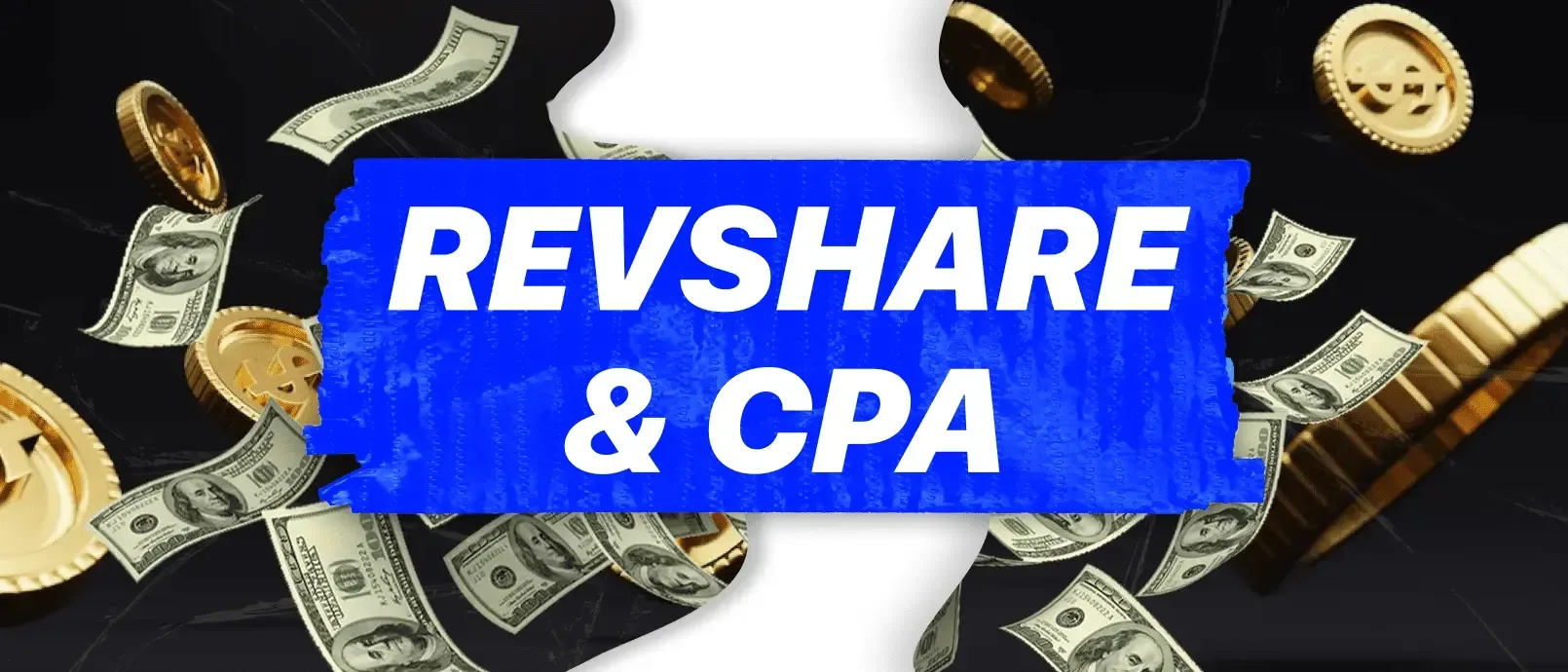Affiliate marketing offers multiple ways to earn, but two of the most popular commission structures are Cost Per Acquisition (CPA) and Revenue Share (Rev Share). Choosing between these two models can feel like picking between immediate gratification and long-term wealth-building. Each has its pros and cons, and the best choice depends on your business model, traffic quality, and risk tolerance.
If you’re an affiliate marketer, casino promoter, or someone exploring different monetization strategies, this article will break down CPA vs. Rev Share in a way that’s engaging, practical, and, most importantly, profitable for you.
Understanding CPA and Rev Share
Before diving into which is better, let’s first understand how these two models work.
CPA (Cost Per Acquisition): In the CPA model, affiliates earn a fixed commission for every player they refer who meets a specific requirement—usually making a deposit or signing up for a service. This means you get paid immediately after the conversion, without worrying about the player’s long-term value.
Example: You promote an online casino, and for every new player who deposits at least $20, you earn a flat $100 commission. Whether the player continues gambling or quits after the first deposit doesn’t affect your payout.
Rev Share (Revenue Share): Rev Share allows affiliates to earn a percentage of the revenue generated by the referred player over time. This means that as long as the player continues playing, you keep earning a commission based on their losses.
Example: You refer a player to an online casino, and they spend $500, losing $200. If the casino’s revenue share agreement is 40%, you earn 40% of that $200 loss ($80). If that player keeps gambling for months or years, you continue earning a share of their losses.

The Battle of CPA vs. Rev Share: Which One Wins?
Now that we understand how both models work, let’s break down the key factors to consider when choosing between CPA and Rev Share.
1. Risk vs. Reward
- CPA is low risk but offers limited earning potential.
- Rev Share is high risk but can be incredibly lucrative over time.
With CPA, you know exactly how much you’ll earn per player. It’s predictable and ensures immediate cash flow. However, you miss out on any long-term earnings from high-value players who stick around and keep spending.
Rev Share, on the other hand, is a gamble. Some players will churn quickly, while others may generate thousands of dollars over time. The challenge is waiting for those high-value players to accumulate earnings.
2. Payout Speed and Cash Flow
- CPA = Instant Money
- Rev Share = Ongoing Earnings
If you need cash fast, CPA is your best bet. Payments are usually processed quickly, often within weeks or even days. This makes it a great choice for affiliates who want immediate returns to reinvest in traffic acquisition.
Rev Share, however, requires patience. You may earn only a small percentage at first, but over time, the residual income can become substantial. If you’re playing the long game, Rev Share can eventually surpass CPA in profitability.
3. Traffic Quality & Optimization
- CPA works well with high-volume, low-engagement traffic.
- Rev Share is ideal for engaged, loyal users.
If your traffic comes from paid ads, social media campaigns, or general non-targeted sources, CPA is a safer option. You’re not concerned about whether players stay active—you just need them to convert once.
For affiliates who build strong communities, engage in SEO, or provide high-value content (such as gambling strategies or VIP programs), Rev Share is more beneficial. This model rewards affiliates who can attract high-quality players who stick around.

4. Industry and Niche Considerations
- Online Casinos & Betting: Rev Share can be extremely profitable since some players gamble for years.
- Software & SaaS: CPA is often preferable because software companies may change their pricing structures over time, affecting Rev Share profitability.
- Health & Fitness: Subscription-based Rev Share can work well if customers remain loyal.
Choosing between CPA and Rev Share also depends on the industry you’re in. Gambling and forex trading, for example, are high-risk niches where Rev Share can bring in significant long-term earnings. However, in industries with shorter customer lifespans (such as one-time purchases), CPA is usually the better option.
5. Affiliate Network Policies & Deal Structures
Some affiliate programs offer hybrid deals—combining CPA and Rev Share. For example, you might get $50 upfront (CPA) plus 20% of the player’s revenue (Rev Share). These deals are attractive because they provide immediate earnings while still allowing for long-term residuals.
Additionally, some Rev Share agreements have negative carryover, meaning if a referred player wins big, you could owe money. Be sure to read the fine print before committing to any Rev Share program.
Who Should Choose CPA?
- Affiliates who want quick payments and low risk.
- Those running paid ads and high-volume traffic.
- Beginners who want a simple, predictable commission model.
Who Should Choose Rev Share?
- Affiliates who want long-term, passive income.
- Those who attract loyal, high-quality users.
- SEO-focused marketers and content creators.

The Best Strategy? A Hybrid Approach
If you’re serious about affiliate marketing, the best approach isn’t necessarily choosing one over the other—it’s leveraging both. Many top affiliates use CPA to maintain cash flow while also investing in Rev Share for long-term profitability.
For example:
- Run paid ads with CPA offers to generate instant revenue.
- Use content marketing and SEO to build a Rev Share-focused traffic stream.
- Partner with affiliate programs that offer hybrid commission deals.
This strategy allows you to benefit from both immediate and long-term earnings, reducing risk while maximizing overall profitability.
Final Verdict: CPA vs. Rev Share – Who Wins?
There’s no definitive winner because it depends on your goals and strategy. CPA provides instant cash flow with lower risk, while Rev Share offers passive income potential with higher rewards over time. If you’re a beginner or working with paid ads, CPA is likely your best bet. But if you’re patient and can attract high-value players, Rev Share will bring in massive earnings over time.
Ultimately, the smartest affiliates find ways to integrate both models into their strategy, ensuring steady cash flow while building wealth in the background. By understanding your traffic, optimizing your funnel, and leveraging hybrid deals, you can make the most of both CPA and Rev Share—turning affiliate marketing into a sustainable and highly profitable venture.





Leave a Reply